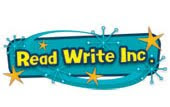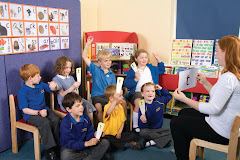
I have been debating the merits of a shiny new series that is due to be published by Usborne this month called 'Very First Reading'.
It is a series of 15 books, based on synthetic phonics, that has been developed to tie in with the Letters and Sounds programme now being used in many primary schools.
In the first seven books, the adult and child take turns to read - the text that the child reads is decodable, based on the sounds they will have learnt. From book 8, the child reads the whole story, with the adult providing help when needed.
On the face of it, this series sounds great - we all know that Usborne publish excellent quality books with lovely illustrations. I do, however, have one or two concerns about the series.
Firstly, the cost - at £4.99 a book, this makes the series unaffordable for many.
Secondly, when children are learning to read, they need a lot of practice at each level, and should only be asked to read text containing sounds they have been taught. There is only one book for each set of sounds, and if these are to be used in a serious way to support reading, parents would have to know exactly which sounds are known, and when to introduce the next book.
Thirdly, I am not convinced that when a young child is having a lovely story read to them, they will be interested in stopping to read their bit (which can be a painfully slow process when at the initial stage of blending).
I would be very interested to hear feedback from anyone using the series once it is published.
If you are interested in learning more about the Very First Reading series, you might like to watch this YouTube video of Peter Usborne - it has some interesting information about how and why children learn to read with phonics, and how decodable books are written:







